The Nepal government signed a $500-million American grant compact with the Millennium Challenge Corporation (MCC) on September 14, 2017 during Sher Bahadur Deuba-led government. The money is meant for building energy and transport network in Nepal. The agreement was registered in Parliament Secretariat on July 6, 2019 for ratification. It needs to be ratified by two-thirds majority of the members of both the Houses before it comes into effect. While the deadline for endorsement is fast-approaching, leaders of ruling NPC, a key player as it commands almost two thirds majority in Parliament, are sharply divided over the issue. Some leaders are for the motion while the others are against it saying that the MCC is a part of Indo-Pacific Strategy (IPS). Against this backdrop, Khabarhub’s Raghab Sharma talked to Dr Prakash Sharan Mahat, joint general secretary of main opposition Nepali Congress, for his views. Excerpts:
The MCC grant approved for Nepal and agreed by the incumbent Foreign Minister as well is made a fuss by the ruling party itself. What is Nepali Congress’ position on this issue?
So far as I know, this concept was put forward by President George W. Bus; this is not granted to all, there are some criteria set for it. The criteria are tested under various indicators. In case of MCC there were 20 indicators to help decide the grant. Nepali Congress-led government had initiated the lead for the grant. Only after we turned fit for the grant, we got this grant. This is not loan or debt, it’s a grant, first of its kind. We have never got such a grant for infrastructure building, that also in so specified way, before. It’s not an ordinary thing; it’s an immense grant. Unfortunately, the way the government is taking is regrettable.
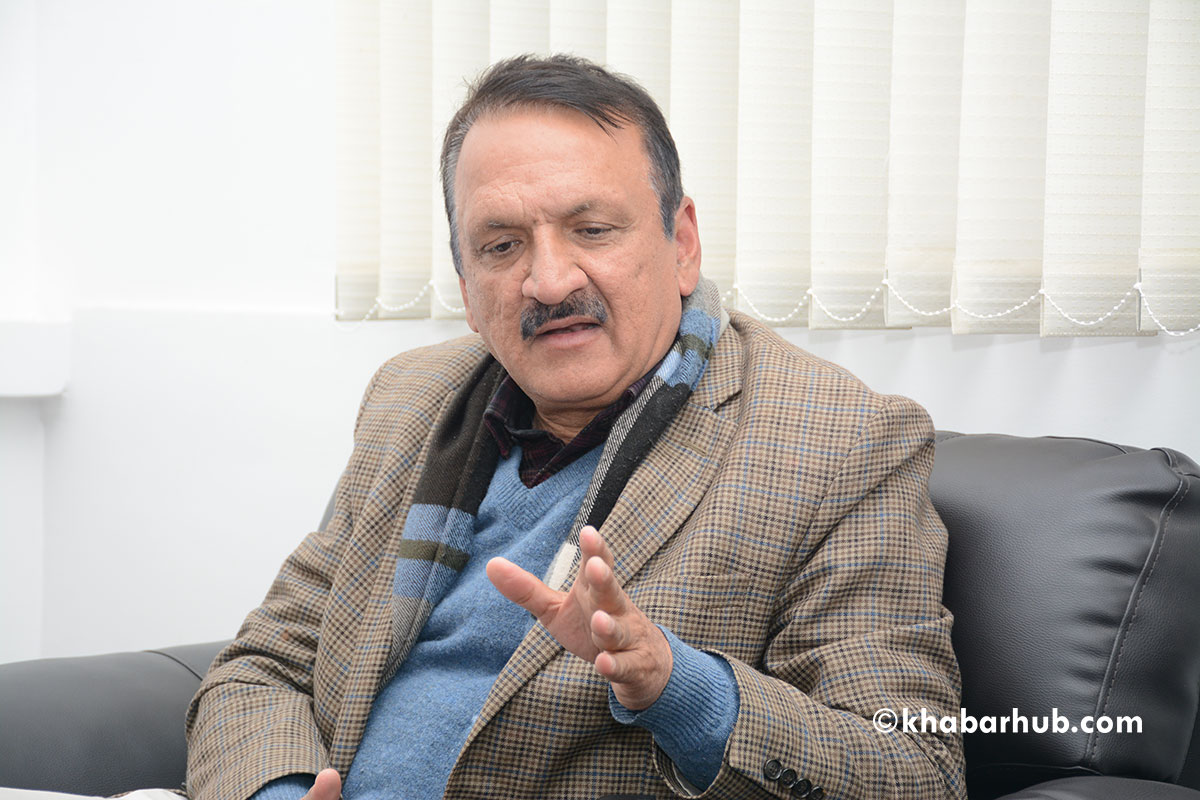
The government has taken the issue too lightly. All possible constraints to the grants have to be addressed immediately, and the grant has to be accepted at once.
Actually, such grants can be accepted by the cabinet; however, if there is the trend of getting such grants ratified from Parliament, as we are not the only party to get the grant till now, we should pass it from parliament. It is foolish for the ruling party leaders to make such issue a bargaining point for the chair and the nominations.
Our firm belief in this issue is: it should be ratified immediately and implemented as the set deadline for the project cannot be prolonged.
I have read how some countries which were hesitant on taking were later deprived of this grant citing their poor performance.
Regarding the criteria related to India’s approval in it, I think the ruling party is not rational enough to understand that in tripartite issues seeking the consent of the third is a must for successful implementation of the program.
When we are going to extend cross-border transmission lines, obviously, the consent of the next country where we are going to extend transmission lines has to be sought. The transmission line is our priority. When I was the Energy Minister, I had facilitated the identification of our priority. The compact, to ensure the successful execution of the project and to be ensured about the targeted return from the project, included the condition. I know, the condition was set following the Nepali delegate’s suggestion during the discussion with MCC officials.
Is the dispute over whether to accept it or not provided it’s a part of Indo- Pacific Strategy worth considering?
I don’t think that it is worth considering that way. Every country has its own policy of increasing its influence. Not only the USA, China, India or even Nepal, but every country also works for its interest. The Chinese leadership has put forward its Belt and Road Initiative; the big resources, they think they can use it for their project and they extended their approach to Nepal as well. I as the Foreign Minister then went through their proposal and tried to speculate on the benefits and loss for the country. We tried to figure out whether the document serves our national interest or not. After many revisions, when we also felt it is useful for the country, we signed the agreement.
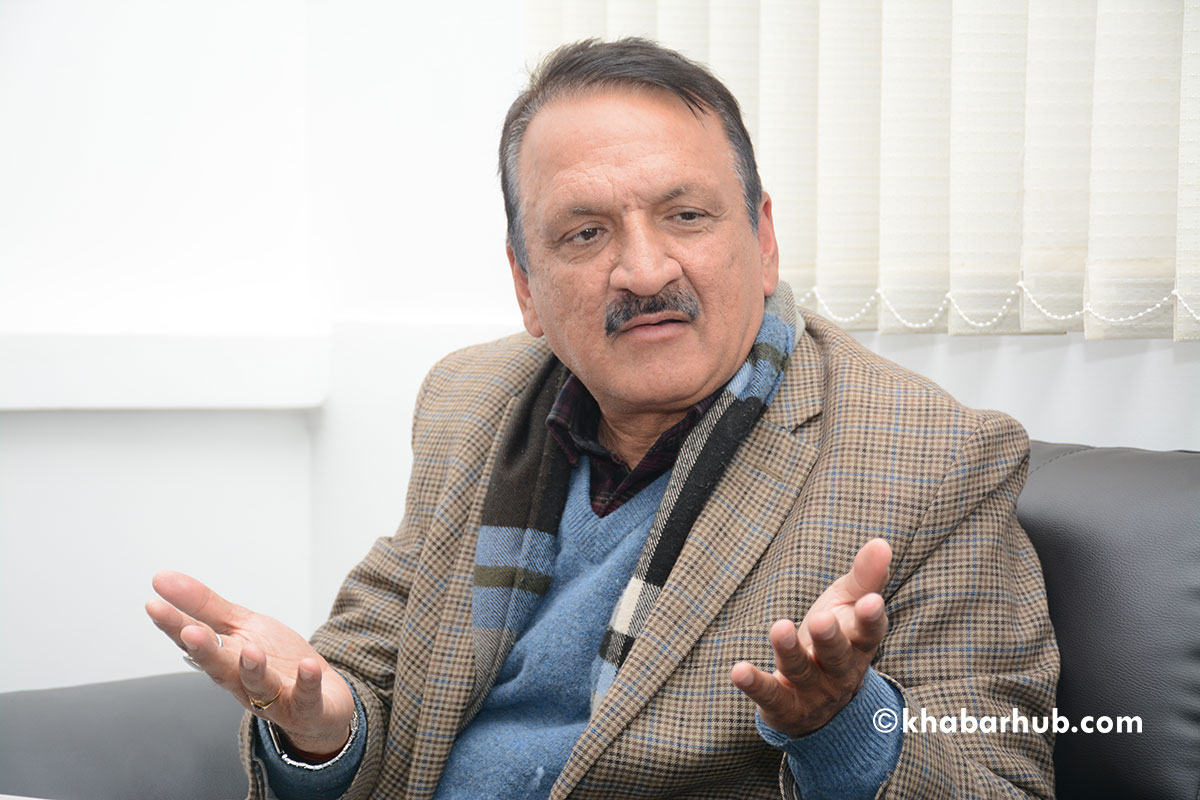
Similarly, the US government brought another concept, first as Millennium Challenge Corporations and now that has been together with Indo- Pacific Strategy. IPS, as it is now, is put forward by Trump administration. The basic concept behind it is somehow similar. As the same government has to execute both concepts, they may identify the core area of investment and go for it. We have to think about whether it is beneficial for us or not.
Each nation is free to choose whether to join it or not. They have said IPS is an open concept where any nation meeting the criteria and willing to work together for universal brotherhood, peace in the region, abide by the fundamental principles of humanity can join it and work together for it. Actually, Indo-Pacific Strategy is not a military alliance, it’s merely a concept put forward by the US government. It has various dimensions, which part of IPS we should adhere to depends on our choice.
They have not asked us to be their alliance in particular issues where our national interest conflict with the Compact. Our concern in such agreement should be on: whether the agreement is in the national interest or not; whether it is to prompt or use us against any of our neighbors or not, whether it is likely to create future debt-traps or not etc. MCC Compact has focused on infrastructure. We, after a thorough study on its impact in our economy now and in the future, had decided to sign the agreement. That’s why I think we should go for it without dillydallying any more.
What’s about the ‘hidden motive’ for the compact?
How can you talk about the hidden motive of anyone or anything? We, prior to applying for the project, went through the pros and cons of the Compact. We have to believe in the documents and the impacts of the proposed project. I see nothing against Nepal’s interest in this mega-project. There are no conditions which can go against our interests. They have come for investment in infrastructure. If we start talking about the hidden motive of the agreement, we should say, we cannot accept any donation from any country in the future. We should be realistic, rational and practical.
How do you evaluate the performance of this government? Don’t you feel the role of the Nepali Congress is not as effective as expected?
So far as the performance of this government is concerned, this government got elected with big promises. Together with the Madhesh based parties support it made itself a two-third majority government; further ahead, the PM came with the sugary slogan ‘ Happy Nepali, prosperous Nepal’; the government even promised two-digit economic growth. Before the election, they portrayed themselves as the only ‘patriot’. Once, they came to power, their veil of ‘patriots’ is blown away by their performance. Everyone has seen their performance at the diplomatic level. Regarding their promise of two-digit growth, due to the favorable weather for agriculture, hardly a 6% growth rate is attained. As the country had got the two-third majority government, as there were lots of opportunities possible due to the reconstruction work made compulsory by the devastating earthquake, and also the opportunities that could have been intensified by the peaceful settlement of the decade long Maoist insurgency, the government could have acted catalyst to materialize so many opportunities.
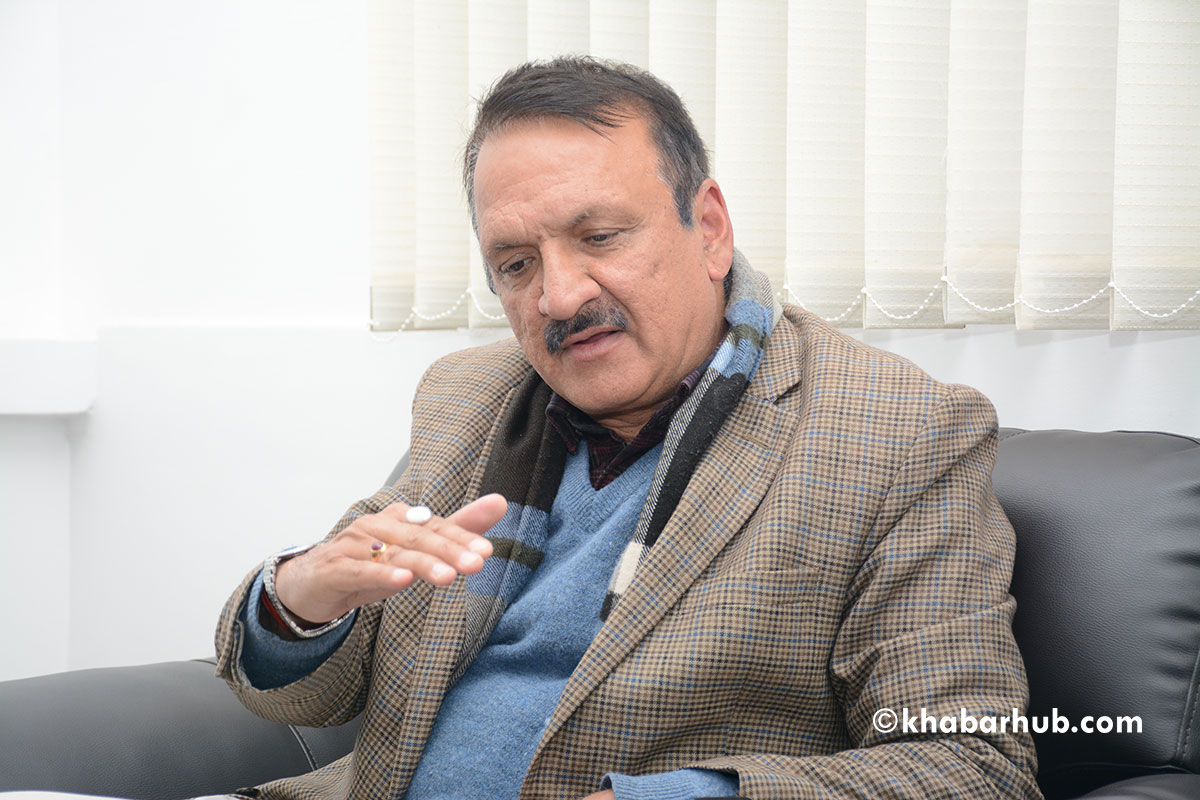
The cause of the government’s poor performance in this regard is due to the lack of skill required for the execution of the grand responsibilities assigned to them. They even lacked the will power, honesty, and accountability as well. The upsetting of the values, the promotion of corruption and the chaos are the only fruits borne by the corrupt individuals and corrupt leadership. They are not serious about addressing the basic lifestyle of the people nor are serious about bringing long term positive changes on economic grounds. The leadership seems focused on suppressing the voices, controlling the mechanisms and taking personal benefits irrespective of what cost the nation should pay for it.
When the investors show their interests in making investment here, they expect transparency, good governance, and accountability, security of their investment, etc; how can they be motivated for investment when they hear the authority saying irrespective of the national benefit, they should provide the individuals in government with certain percent as commission or extra benefit, how can it make conducive environment for investment? The data show that there is no substantive rise in foreign investment, even the Nepali investors are discouraged in many ways. There is undue tax increment, tax from the local level to the federal level all levied on the investors, the bank interest is very high. What’s more, the investors have to fulfill various undue and hidden demands of various sources protected by the government. These all lead to the high cost of investment in Nepal, which has, unfortunately, discouraged Nepali investors. When Nepali investors are discouraged and foreign investors feel insecure; how can the investment be enhanced in this situation? Insufficient investment results in slack growth in the industrial sector which ultimately fails to generate more employment opportunities. That’s why the government could offer employment opportunities to merely 50 thousand people though the promise was of 500 thousand. Not only this, when the industries come to a closure, the revenue of the government also goes down. Perhaps, this is the reason why the government has been trying to generate more income by squeezing the already shrinking taxpayers. It’s ironic that the government is attempting to get all golden eggs of the hen by killing the hen itself. We have got an exemplary case of bad governance.
Regarding the role of the opposition party, I confess we have failed to act as per expectation. We should have made the performance status of the government to the public, we should have shown the people that the emperor has no clothes on. The government has been showing discriminatory behavior in the services to be provided to the people. Rule of law is discarded, the norms and values are distorted, democratic principles and ethics are at stake; we should have stood firm against all such behaviors; and here, I confess, despite our protests in parliament and various forums, perhaps, due to the nominal presence in the parliament, we were not much successful to ‘disillusion’ the people. With the arrival of winter, we will intensify the protest in a more organized way.
Do you want to add anything more to the current scenario?
I am really sad to see that after the formation of the government, the fundamentals of democracy are at stake, that also due to the government which came to power after the election. The principles we fought for are at stake, the issues we discussed thoroughly while drafting the constitution are now superseded by the whimsical party decisions. Many bills proposed for this session are, as we see now, attempting to intrude the fundamental rights like the right to privacy, right to freedom of expression, etc. The government is reversing the democratic norms and values and seems committed to dictatorship. This is something bothering us a lot.
About the bill you talked about, what will be the role of the Nepali Congress?
Nepali Congress thinks the fundamental rights we have included in the constitutions are the lifelines of democracy. Intrusion on any rights like these paralyzes democracy. We will take every measure possible both in the parliament and in the community, to counter anti-democratic activities of the government.
What is the agenda of the Nepali Congress’s forthcoming Central Committee meeting?
The agenda of the forthcoming meeting is to discuss the nomination for the vacant seats in National Assembly. Next one is about the practice of internal democracy in the party. We are going to have our general convention from Feb. 19-22, 2021 and prior to that, we have planned to complete the local level assemblies to get the representatives for the convention.


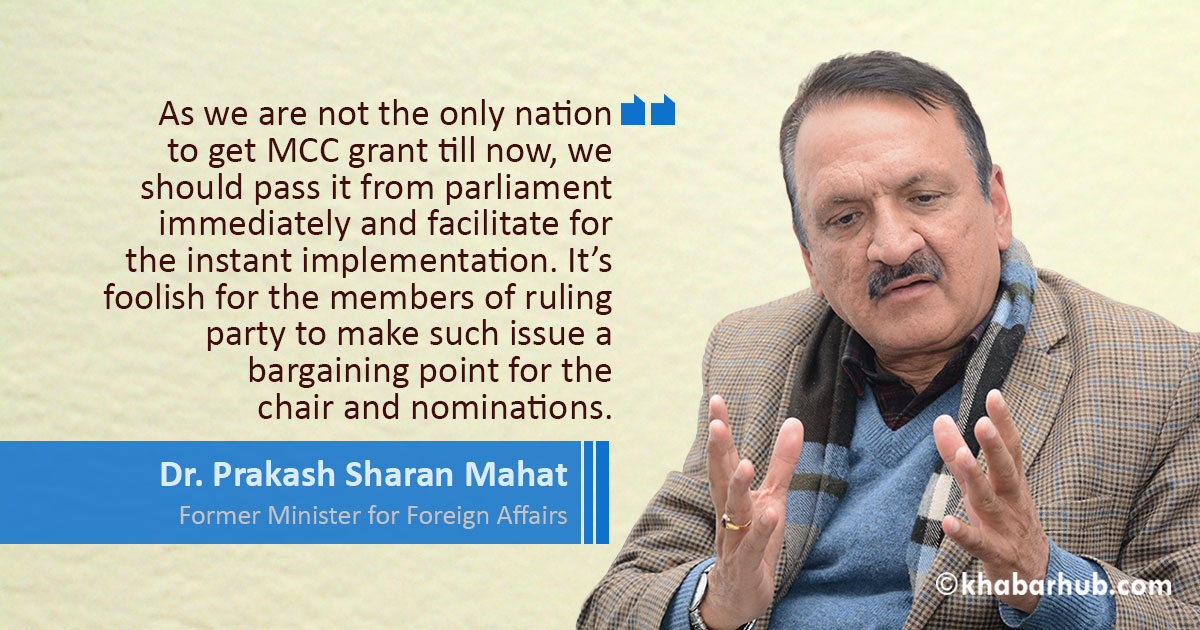
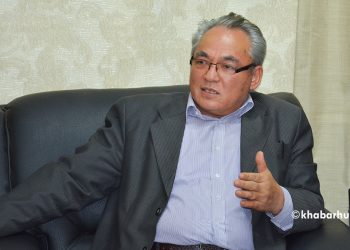
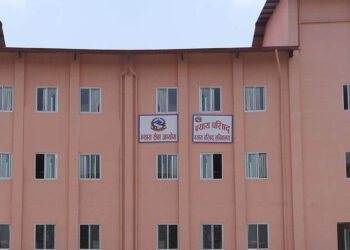
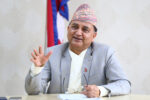


Comment